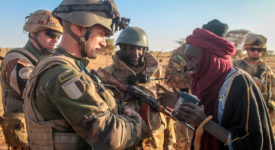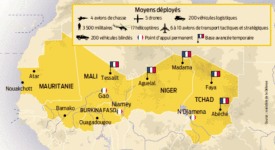The European Union said that its development assistance and humanitarian aid would be redefined in a way that will include more work on “resilience”, which could be characterized as the ability of individuals and communities to recover from stresses and shocks. The new concept has been slowly gaining prominence in Brussels’ circles as policymakers have been seeking ways to mitigate the expected impacts of climate changes on developing countries. Many of the world’s poorest people and their livelihoods are often struck by extreme weather conditions, disasters, and worsening environment.
The EU’s Commissioner for humanitarian aid and crisis management, Kristalina Georgieva, said during the first forum on resilience in development policy that the idea was actually “nothing new”, as it in fact only referred to “coping mechanisms that people have to create themselves”. She pointed out that the worst crises received substantial media attention, yet the success of resilience was a “difficult story to tell”. For instance, many Bangladeshi people have started to rear ducks instead of chickens as a protection against floods.
Risk management and crisis response are now also considered as part of long-term development projects. Last year, the Commission launched an action plan for resilience in crisis-prone countries for 2013-2020 stating that the EU wants to build a stronger network of collaboration between crisis-struck countries and EU member states. The focus is on building “resilience, bringing together humanitarian action, long-term development cooperation, and on-going political engagement”.
Brussels is currently supporting many projects and action plans including the “Global Alliance for Resilience for the Sahel and West Sahara (AGIR)”, which is in need of 1.5 billion euros for 2014-2020, as well as “Supporting the Horn of Africa’s Resilience” (SHARE), which has obtained 350 million euro since its launch in 2011. Project like SHARE are envisaged to be covered by the 11th European Development Fund in addition to running local project such as “Les Nigériens Nourrissent les Nigeriens (The Nigerians feed Nigerians)” or 3N, an initiative supervised by the government of the Republic of Niger.
Article Tags:
AGIR · Bangladesh · EC · EU · Kristalina Georgieva · Niger · Resilience · Sahel · SHARE · West SaharaArticle Categories:
GREEN & SOCIAL EUROPE






